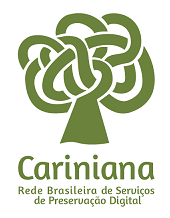Home water security and ecosystem services in “Serra do Martins”, Rio Grande do Norte State
DOI:
https://doi.org/10.5433/2447-1747.2019v28n2p61Keywords:
Water safety, Environmental justice, Ecosystem services, Governance.Abstract
Environmental injustice does not only occur in poor countries, but also in developed and developing nations, mainly regarding the inequalities of race, gender, appropriation of indigenous areas; minority groups, and conflicts over water use. However, it is a fact that socio-environmental conflicts are much more visible and harmful in poorer countries. These countries do not adopt governance integrated into the conservation of ecosystem services, which are essential for the well-being of the populations and ecological balance. Thereby, a nation that seeks for water security must assure the ecosystem functions of nature, fighting for environmental justice. Thus, this study aimed to understand home water security in “Serra do Martins”, Rio Grande do Norte State, Brazil, analyzing the supply of provision ecosystem services and the environmental justice. As a methodological procedure, the following strategies were adopted: cartographic base, field research, bibliographic analysis, visits to water resources and municipal management sectors, application of a questionnaire on home water security, and proposal for data treatment. The relationship between environmental injustice, in accessing the underground water sources in “Serra do Martins”, and the lack of home water security stood out, revealing distributive ecological conflicts, in addition to an infrequent provision ecosystem services, indicating inefficiency to greener governance.Downloads
Downloads
Published
How to Cite
Issue
Section
License
The authors retain the copyright simultaneously licensing the work under the Creative Commons Attribution-NonCommercial 4.0 International license. This license allows third parties to distribute, remix, adapt, and develop the material in any medium or format for non-commercial purposes, giving due credit for authorship and initial publication in this journal.
The journal reserves the right to make normative, orthographic, and grammatical changes to the originals in order to maintain the standardized language and the credibility of the vehicle while still respecting the authors' writing style. Conceptual suggestions, changes, or corrections will be communicated to the authors when necessary.
The opinions expressed by the authors of the articles are their sole responsibility.
This work is licensed under a Creative Commons Attribution-NonCommercial 4.0 International license.















